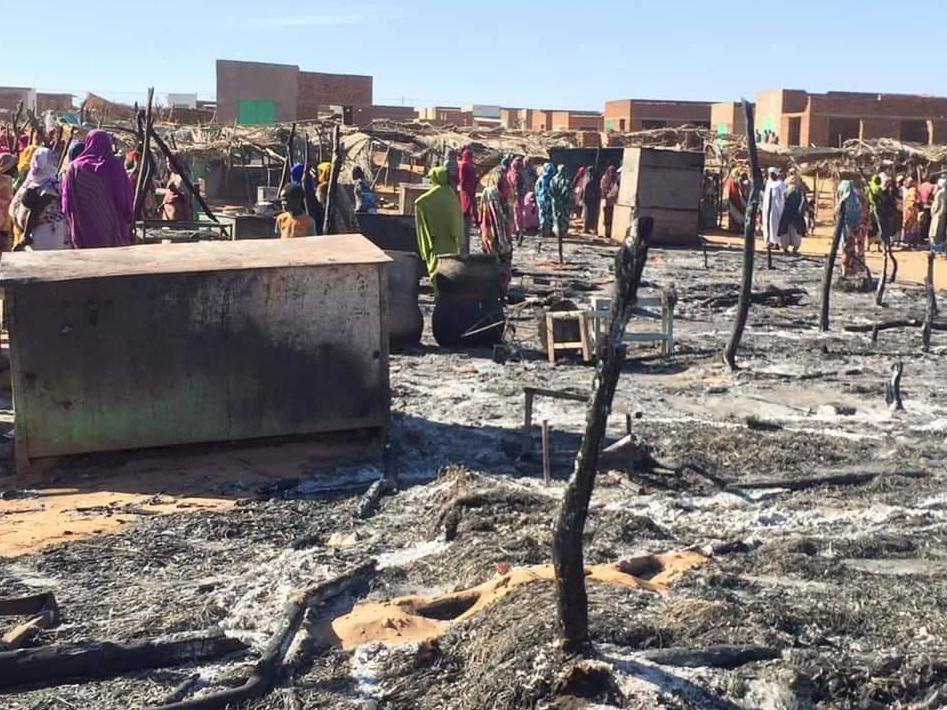Gender-based violence surging among displaced women during pandemic, report warns
‘With economic devastation, lockdown and border closures, gender-based violence increases,’ says campaigner

Your support helps us to tell the story
From reproductive rights to climate change to Big Tech, The Independent is on the ground when the story is developing. Whether it's investigating the financials of Elon Musk's pro-Trump PAC or producing our latest documentary, 'The A Word', which shines a light on the American women fighting for reproductive rights, we know how important it is to parse out the facts from the messaging.
At such a critical moment in US history, we need reporters on the ground. Your donation allows us to keep sending journalists to speak to both sides of the story.
The Independent is trusted by Americans across the entire political spectrum. And unlike many other quality news outlets, we choose not to lock Americans out of our reporting and analysis with paywalls. We believe quality journalism should be available to everyone, paid for by those who can afford it.
Your support makes all the difference.Gender-based violence is soaring among displaced women and girls during the coronavirus crisis, a new report has warned.
A study by Refugees International has suggested lockdowns, border closures, and economic desperation caused by the public health emergency increase the risk of displaced women and girls suffering domestic abuse at the hands of their partners, conflict-related sexual violence, human trafficking, and forced and early marriage.
Researchers warn some of the most vulnerable populations in the world have avoided the worst of the coronavirus crisis so far but this is set to change due to coronavirus infection rates growing most rapidly in low-income nations.
There are more than 79 million refugees, asylum seekers, and internally displaced people worldwide who constitute almost one per cent of the world’s population.
Devon Cone, senior advocate for women and girls at Refugees International, told The Independent coronavirus chaos means families are suffering from additional stress, which can compound pre-existing patterns of domestic abuse.
She said: “As options for safety and economic sustainability for families decrease with economic devastation, lockdown and border closures, gender-based violence increases. Also a lot of service providers which support women and girls who experience violence are operating at reduced capacity or closed altogether.
“The added stress and financial insecurity that families are suffering also increases the risk of gender-based violence and especially intimate partner violence. It is exacerbating existing patterns and increasing those trends. Finally, on top of that, measures to mitigate the spread of coronavirus are making the gender-based violence harder to address.
“I spoke to a worker in a Greek refugee camp. She said the stress there is very high due to the uncertainty about what is going to happen next and when asylum cases will be processed and this is leading to higher levels of violence perpetrated against women by male partners within families. The women there feel abandoned and feel like there are not enough resources in the camp to address what is going on.”
Ms Cone said the global pandemic was putting women and girls at increased risk of human trafficking and forced marriage — adding that the usual agencies that monitor these trends are currently having trouble collating data.
“Also statistics about forced marriage and human trafficking were already almost always lower than the reality,” she added. “But now, as borders close there are less legal options to enter neighbouring countries safely to seek asylum or economic opportunities so the risk of human trafficking rises.”
Ms Cone described displaced women and girls as those who have been forced to flee their home because of conflict, persecution or economic collapse and have moved into another part of their country or gone to another nation altogether.
Matters were particularly difficult for displaced women who do not have access to government support, she added.
The report calls for law enforcement officials not to deport or punish those who seek service provision or protection linked to gender-based violence — irrespective of what their legal position is.
In the UK, domestic violence has soared during the Covid-19 emergency — with a report released by MPs revealing domestic abuse killings doubled in the first 21 days of lockdown.
At the end of May, it emerged calls to the UK’s national domestic abuse helpline had risen by 66 per cent and visits to its website surged by 950 per cent since the start of the coronavirus lockdown.
A study, carried out by the United Nations’ sexual and reproductive health agency (UNFPA) at the end of April, warned the coronavirus crisis could stall measures to curb the practice of child marriage and possibly lead to an additional 13 million child marriages in the next decade that could have been stopped.
More than 20,000 underage girls are married every day, research by Save the Children charity from 2017 found.
Join our commenting forum
Join thought-provoking conversations, follow other Independent readers and see their replies
Comments